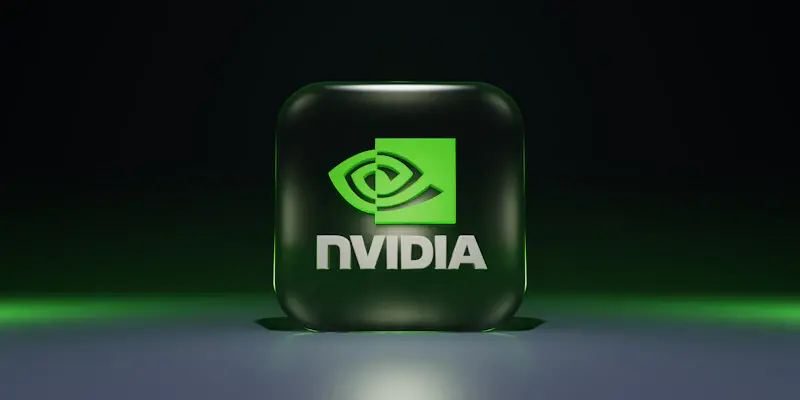In a groundbreaking collaboration, Nvidia and DataStax have unveiled a significant advancement in the realm of generative AI. This innovation involves the integration of Nvidia NeMo Retriever microservices with DataStax’s AI platform. The combination of these technologies is set to revolutionize how enterprises manage and retrieve large volumes of data. As the volume of enterprise data is anticipated to exceed 20 zettabytes by 2027, the efficiency of data storage and retrieval becomes increasingly critical. This new development not only reduces storage requirements but also enhances the speed and accuracy of information retrieval, making it a pivotal tool for businesses.
Enhanced Data Storage and Retrieval Efficiency
Addressing Unstructured Data Challenges
Kari Briski, Nvidia’s VP of product management for AI, emphasized a crucial point: a staggering 83% of existing enterprise data is unstructured, with nearly half of it consisting of audio and video content. Traditional methods of data storage and retrieval have proven to be insufficient in managing such vast and complex datasets. The integration of Nvidia NeMo Retriever microservices with DataStax’s AI platform addresses this challenge by significantly enhancing data storage efficiency. This innovation reduces the data volume by an impressive 35 times compared to conventional techniques, which is a major step forward in the scalability of generative AI in enterprises.
The technology has already demonstrated its effectiveness in real-world scenarios. For example, the Wikimedia Foundation leveraged this system to drastically cut down the processing time for 10 million Wikipedia entries. What previously took 30 days can now be accomplished in less than three days. This efficiency is due not only to rapid processing capabilities but also to the system’s ability to manage real-time updates and edits made by volunteers around the globe. Such capabilities are essential for enterprises operating in dynamic environments where quick access to up-to-date information is crucial.
Semantic Search and Real-Time Retrieval
Chet Kapoor, CEO of DataStax, further explained the value proposition of their partnership with Nvidia. By combining semantic search with traditional text search and incorporating Nvidia’s advanced re-ranker technology, the system can retrieve the most relevant results in real-time. This real-time retrieval is vital for enterprises that require immediate access to information while maintaining security and context. This combination ensures that users can quickly find the information they need without compromising the integrity or security of the data.
A pivotal aspect of this collaboration is its focus on making enterprise data accessible to AI systems without exposing it to external threats. Take FedEx, for example, which possesses vast amounts of sensitive delivery information. Through Nvidia and DataStax’s technology, FedEx can harness this data’s full potential for AI applications without risking it being accessed by external language models like Gemini or OpenAI. This meticulous approach ensures that organizations can comply with regulatory requirements while still leveraging powerful AI tools.
Future Enhancements and Adoption
Complex Document Processing
Looking ahead, Nvidia has ambitious plans to further enhance the capabilities of this technology. One area of focus is the ability to manage more complex document formats, such as multimodal PDF processing. This involves understanding and interpreting tables, graphs, charts, and images that span multiple pages—a sophisticated challenge that can significantly broaden the technology’s applications. By tackling these complex data forms, Nvidia aims to offer even more robust solutions that can handle the intricate needs of enterprise data management.
The technology’s potential has already been recognized by leading financial institutions, despite the stringent regulatory environment they operate in. Firms such as the Commonwealth Bank of Australia and Capital One are among the early adopters, showcasing the technology’s robust security measures that align with regulatory standards. This adoption highlights the technology’s value in sectors where data security and compliance are top priorities.
Industry Impact and Accessibility
In a groundbreaking partnership, Nvidia and DataStax have introduced a remarkable advancement in generative AI. This development sees the integration of Nvidia NeMo Retriever microservices with the DataStax AI platform, poised to transform how businesses handle and retrieve massive amounts of data. With enterprise data projected to surpass 20 zettabytes by 2027, efficient data storage and retrieval become increasingly essential. This cutting-edge collaboration not only minimizes storage needs but also significantly boosts the speed and accuracy of data retrieval, making it an indispensable tool for modern enterprises. By leveraging the capabilities of both Nvidia and DataStax, businesses can achieve a more streamlined and effective approach to managing their ever-growing data. This innovation represents a pivotal shift, ensuring that enterprises can keep pace with the explosive growth of data, ultimately driving more informed decision-making and operational efficiencies.

